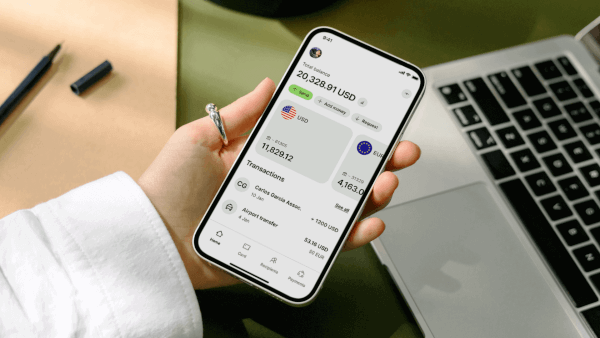Latina Equal Pay Day: Shining a Light on Financial Empowerment
On October 3, 2024, we observe Latina Equal Pay Day - a day dedicated to highlighting the stark wage disparity that Latinas in the United States are facing....

As COVID testing mandates drop in the US and globally, it’s no wonder more folks are thinking about taking an international trip in the next year. However, economic factors such as inflation and rising costs are likely to impact future plans, which is why Wise set out to understand more about what is top of mind for travelers as we head into summer.
In a recent Wise survey of US and Canadian consumers, findings show that 43% of US consumers are likely to travel internationally in the next 12months, and rising costs are impacting international travel plans for almost half (46%) of consumers. For Canadian consumers, 67% reported being likely to take an international trip over the next 12 months, and 43% are looking to save more money before booking their next trip.
Of the US respondents who are less likely to travel abroad, the top deterrents are:
At the same time, 46% of respondents say running out of money is a top emergency they worry about when traveling abroad. And 42% said they worry about getting COVID and having to extend their trip to quarantine in their destination location — a factor potentially no longer relevant as testing requirements have been lifted.
The study revealed widespread economical savviness among a majority of US consumers, with over four in five (84%) respondents saying they use some money-saving hacks for travel, with the most popular methods being:
At the same time, US respondents also admit to some bad travel habits:
Plus, more than 1 in 10 (12%) US respondents admit to booking travel plans based on what they see on social media without considering budget. That number more than doubles to more than 27%, when looking at the Gen Z population specifically.
The research revealed mixed approaches for how US consumers plan to pay while traveling abroad. Of the four in five (79%) who plan to use physical currency, their reasons include:
Of the almost one-quarter (21%) of US respondents that do not plan to use physical currency, reasons include:
The same number of US respondents (17% each) say they intend to use a digital wallet, plan to visit multiple destinations that require too many currencies, or don't want the hassle of exchanging leftover cash. Additionally, one in 10 (11%) of travelers plan to use a money transfer app to pay for things abroad.
This is slightly different among Canadian consumers, as 81% plan to use their credit card the most when traveling abroad, 31% plan to rely on their debit card, and 16% plan to rely on their digital wallets when they travel over the next 12 months. The motive for Canadians paying in physical currency includes:
If you’re planning a trip this summer make sure you’re not losing money from hidden fees being charged by banks when using a credit card or taking money out of the ATM. It’s important to always pay in local currency whenever possible to avoid dynamic currency conversion and to watch out for hidden fees from ATM providers.
In fact, you should consider utilizing a universal account from Wise for a convenient, fast and affordable way to manage your money. No one wants to be worried about going over budget when traveling from fees you’re not aware of, and Wise is making it easier than ever to stay on track and focus on what really matters: enjoying your trip.
On behalf of Wise, Researchscape International polled 2,221 U.S. and Canadian adult (age 18+) consumers in May 2022. Results were weighted by age, gender, Census division, education level, and employment status.
*Please see terms of use and product availability for your region or visit Wise fees and pricing for the most up to date pricing and fee information.
This publication is provided for general information purposes and does not constitute legal, tax or other professional advice from Wise Payments Limited or its subsidiaries and its affiliates, and it is not intended as a substitute for obtaining advice from a financial advisor or any other professional.
We make no representations, warranties or guarantees, whether expressed or implied, that the content in the publication is accurate, complete or up to date.

On October 3, 2024, we observe Latina Equal Pay Day - a day dedicated to highlighting the stark wage disparity that Latinas in the United States are facing....

Remittances tell a powerful story of sacrifice and hope. These transfers of money, sent by people living and working in the U.S. to their families in their home

A dedicated comparison research team in Wise compared Wise to four India bank accounts. They found that we’re on average 1x cheaper to send ₹9,000 abroad....

In this year of major sporting events, Americans are getting a special treat with the 2024 ICC Men's T20 World Cup. This may seem a bit strange; America and...

For any business, going international can mean new customers, new suppliers, new ways of thinking. In short, new opportunities. For US small - and...

So, will “fee-free” and “no fee” advertising disappear tomorrow?